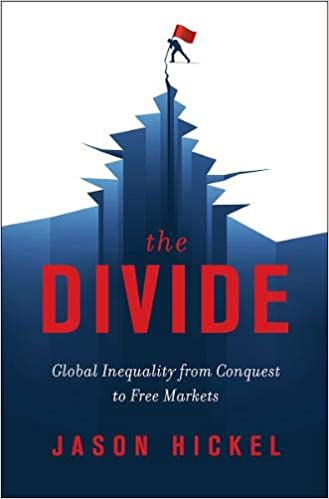
Hickel is right to point out that these countries have been attacked, undermined and stripped of wealth, choice and opportunity. In some case, I agreed with Hickel (meaning he’s not wrong) in others, I disagreed (meaning he’s wrong).įirst, where he’s not wrong (i.e., “I agree with him but maybe we’re both wrong”): The colonial period - and a current reality of post-colonial theft by corrupt locals and global elites - was and is terrible for many people now living in “developing” countries.

It is a provocative, urgent and ultimately uplifting account of how the world works, and how it can change for the better.Jason Hickel’s book (subtitled “Global Inequality from Conquest to Free Markets” in the US and “A Brief Guide to Global Inequality and its Solutions” in the UK) delves into questions that matter to me, in my post-colonial woke state. Drawing on pioneering research and years of first-hand experience, The Divide tracks the evolution of global inequality - from the expeditions of Christopher Columbus to the present day - offering revelatory answers to some of humanity's greatest problems. Poor countries are poor because they are integrated into the global economic system on unequal terms, and aid only helps to hide this.

But just because it is a comforting tale doesn't make it true. For decades we have been told a story: that development is working, that poverty is a natural phenomenon and will be eradicated through aid by 2030. Though global real GDP has nearly tripled since 1980, 1.1 billion more people are now living in poverty.Today, 60 per cent of the world's population lives on less than $5 a day.




 0 kommentar(er)
0 kommentar(er)
